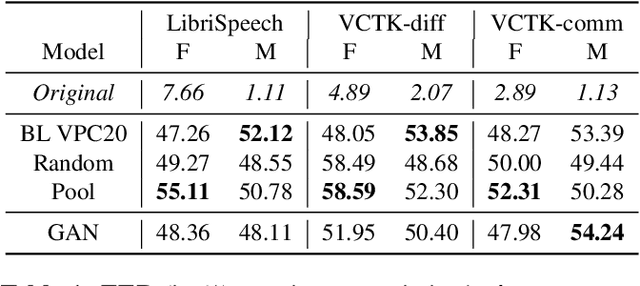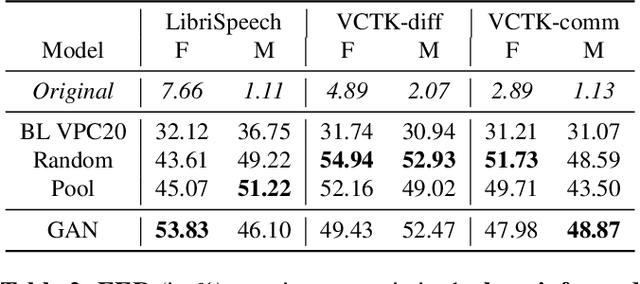Anonymizing Speech with Generative Adversarial Networks to Preserve Speaker Privacy
Paper and Code
Oct 20, 2022



In order to protect the privacy of speech data, speaker anonymization aims for hiding the identity of a speaker by changing the voice in speech recordings. This typically comes with a privacy-utility trade-off between protection of individuals and usability of the data for downstream applications. One of the challenges in this context is to create non-existent voices that sound as natural as possible. In this work, we propose to tackle this issue by generating speaker embeddings using a generative adversarial network with Wasserstein distance as cost function. By incorporating these artificial embeddings into a speech-to-text-to-speech pipeline, we outperform previous approaches in terms of privacy and utility. According to standard objective metrics and human evaluation, our approach generates intelligible and content-preserving yet privacy-protecting versions of the original recordings.
 Add to Chrome
Add to Chrome Add to Firefox
Add to Firefox Add to Edge
Add to Edge